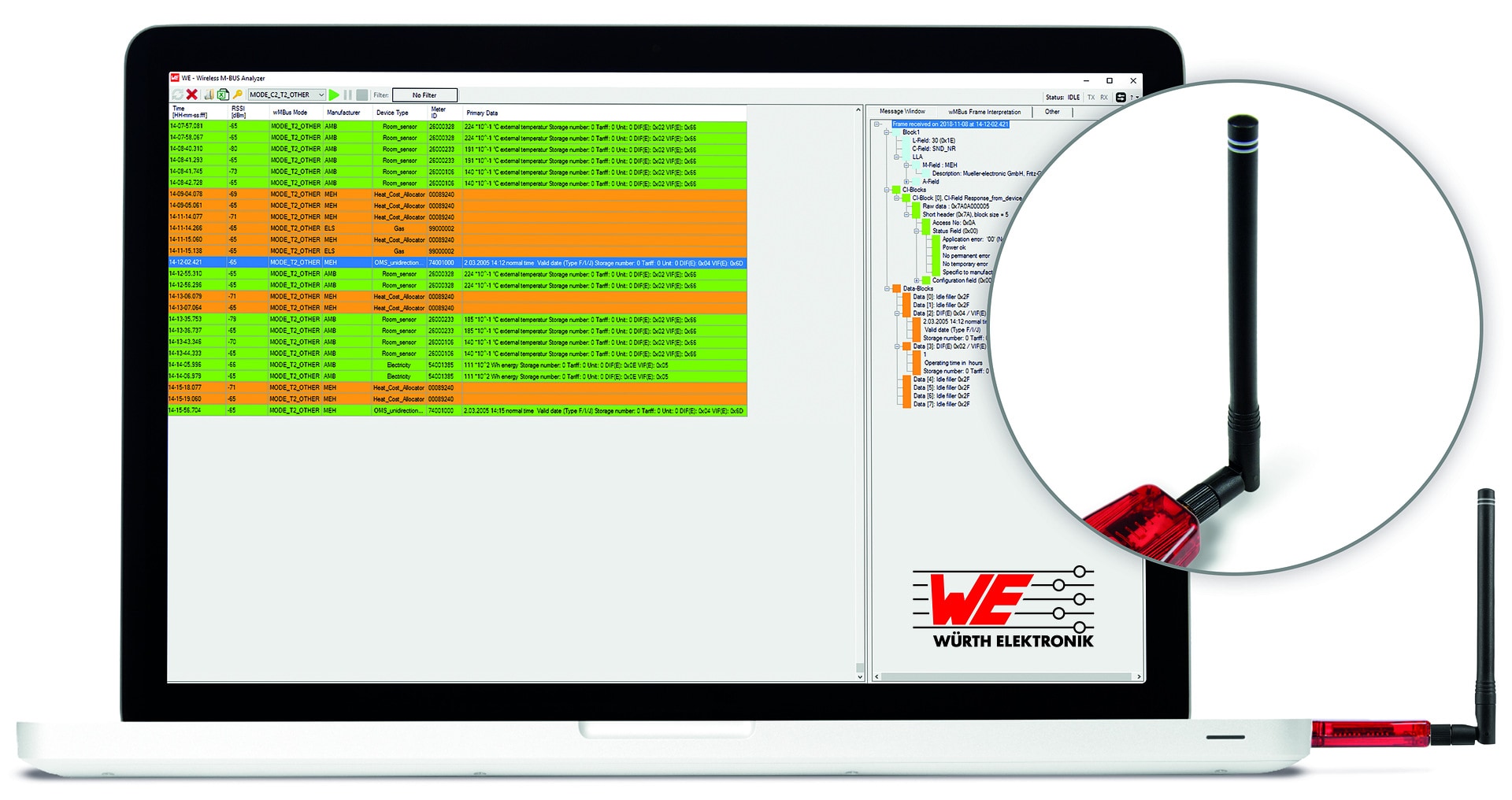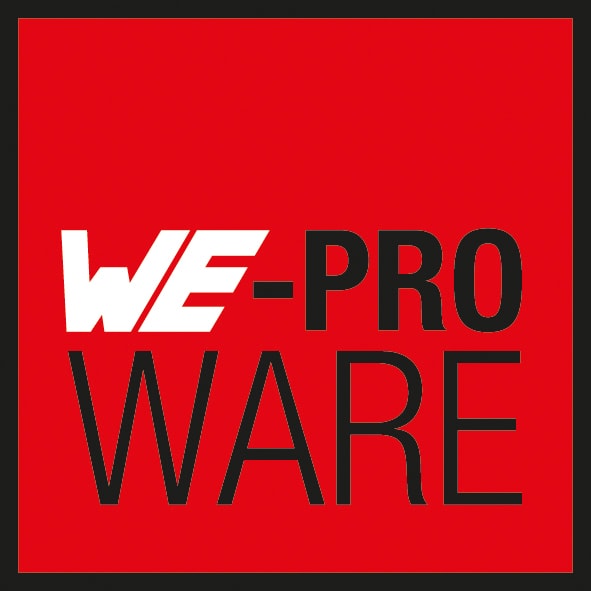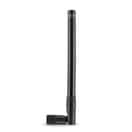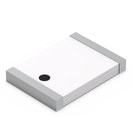| Size | Dimensions | L (mm) | W (mm) | H (mm) | |
|---|---|---|---|---|---|
| WIRL-EVAL | 74 | 23.65 | 12 |
Characteristics
- The software only works in combination with a licensed USB radio stick AT2 which comes included in this package. The USB radio stick acts the receiver for telegrams from intelligent meters and supports the S,T,C modes.
- The Analyzer tool package includes the following:
- 1 x USB RF stick AT2 ( Caution : This is NOT the Mimas-I , Metis-I or Metis-II radio stick )
- 1 x SMA antenna
- 1 x USB data stick with Analyzer Software and Documentation
- Tool for monitoring and analysis of wireless M-BUS communication
- Packet content visualization
- Supports data records according to EN13757-3:2013 standard
- OMS (Open metering System) parser (according to OMS 4.1.0 draft 06/2016)
- Message parser for deep packet analysis incl. M-BUS application layer
- Decryption function (AES128) for security profiles A and B (encryption modes 5 and 7)
- Log feature (.xlsx, MS Excel) for offline analysis
- Various wireless M-BUS modes supported (S-, T- and C-Mode)
- Colorful presentation of the possible information
Products
| Order Code | Datasheet | Simulation | Manual | Downloads | Status | Description | Frequency Range (MHz) | dLoS (m) | PTx, 50 Ω (dBm) | Rxsens, 50 Ω (dBm) | Rb max. (kbps) | L (mm) | W (mm) | H (mm) | Antenna | Offer |
|---|---|---|---|---|---|---|---|---|---|---|---|---|---|---|---|---|
| 2607057283011 | SPEC | – | Active i| Production is active. Expected lifetime: >10 years. | Metis - Analyzer Tool | 868.3 - 869.525 | 800 | 14 | -106 | 100 | 74 | 23.65 | 12 | Hyperion-I |
| Order Code | Datasheet | Simulation |
|---|---|---|
| 2607057283011 | SPEC |
| Offer |
|---|
| Order Code | Datasheet | Simulation | Manual | Downloads | Status | Description | Frequency Range (MHz) | dLoS (m) | PTx, 50 Ω (dBm) | Rxsens, 50 Ω (dBm) | Rb max. (kbps) | L (mm) | W (mm) | H (mm) | Antenna | Offer |
|---|
Download now free of charge
Software downloads
IoT becomes intelligent when hardware and software work together harmoniously!
The Wireless M-BUS Analyzer is a tool for receiving and analyzing wireless M-Bus telegrams that comply with EN 13757-4:2013 transmitted by devices with role "meter" or "other". It supports both unencrypted and encrypted telegrams (supported encryption modes are: 0, 5, 7) in accordance with the OMS specification Vol2 V4.1.0 (draft June 2016) and EN13757-3:2013.
The data records in the telegrams are displayed in plain text by means of the integrated parser, which greatly simplifies the interpretation of a telegram. A review of the configuration settings or, for example, the meter readings can therefore be completed simply.
The Wireless M-BUS Analyzer is an excellent tool for analyzing errors and RF range of M-Bus devices. Thanks to the simplified representation and an integrated logging function, data can also be analyzed at a later time.
The software only works in combination with a licensed AMB8665-AT2 USB dongle. This USB dongle acts as the receiver for telegrams from the meters and supports the S-, T- and C-mode.Due to current export legal restrictions, we are required to control the provision of software. To download the software, please contact our technical support or your local sales representative directly. Thank you for your understanding.
The aim of the Wireless Connectivity Software Development Kit (SDK) is to minimize the effort required on customer side to enable his host MCU to communicate with Würth Elektronik eiSos radio modules. It contains the implementation of all available commands in pure C-code. In order to integrate any Würth Elektronik eiSos wireless module, the user has to simply port the corresponding C-code to his host processor. This significantly reduces the time needed for developing the software interface to the radio module.
The "ACC V3" is a tool to update and configure certain Würth Elektronik eiSos modules. The supported features will include the search and upload of new firmwares as well as the modification of the available configuration parameters. It allows full user control over all supported products, as in the range of the producer’s intentions, always referring to the respective manual of the connected module.
Due to current export legal restrictions, we are required to control the provision of software. To download the software, please contact our technical support or your local sales representative directly. Thank you for your understanding.
Wireless M-Bus
Wireless M-Bus
Wireless Meter Bus (wM-BUS) is the extension of the meter Bus (M-BUS) with a wireless protocol and role scheme for handling communication over a standardized wireless communication interface between meters and data loggers – so called smart meter gateways (SMGW). This scheme is specified by the European standard EN 13757 and its sub-standards. The motivation of this standard is to allow an automated measuring and processing of data, track the usage of resources and to optimize provisioning in order to create an “Advanced Metering Infrastructure” (AMI).
Such Smart grid / meter devices are typically battery operated and in need for a long range and robust wireless communication. This is the reason for using the Sub GHz frequencies in the free ISM Bands. EN13757-4 is specifying radio options in the 169 MHz, 434 MHz or 868 MHz band, regarding to the region.
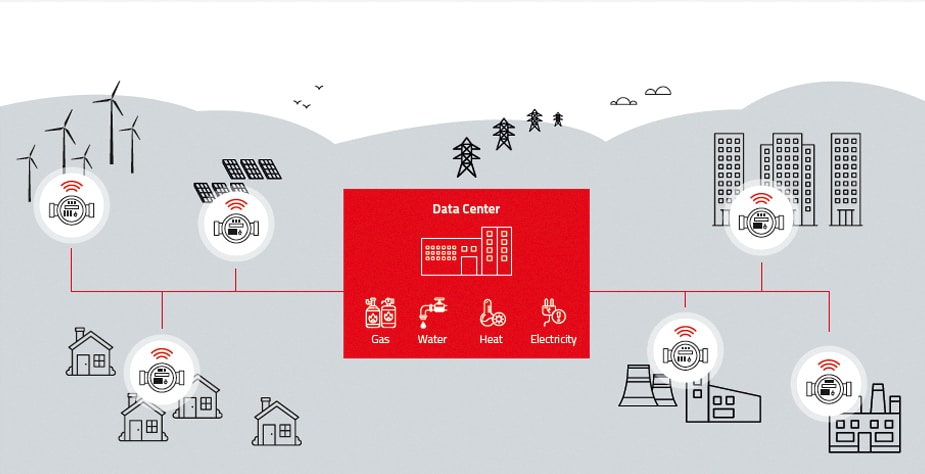
User Application


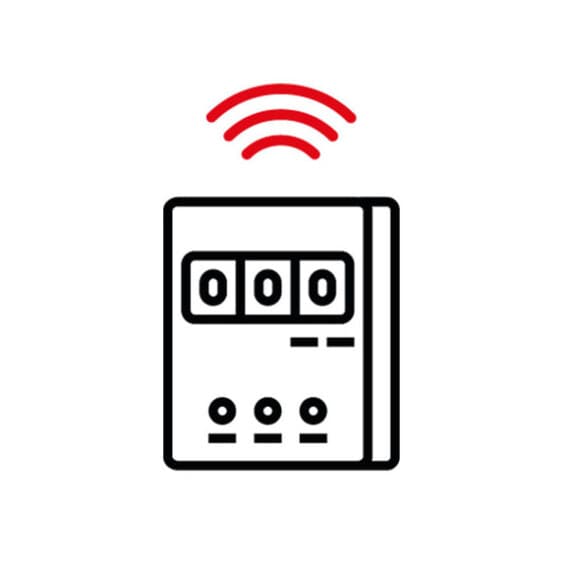

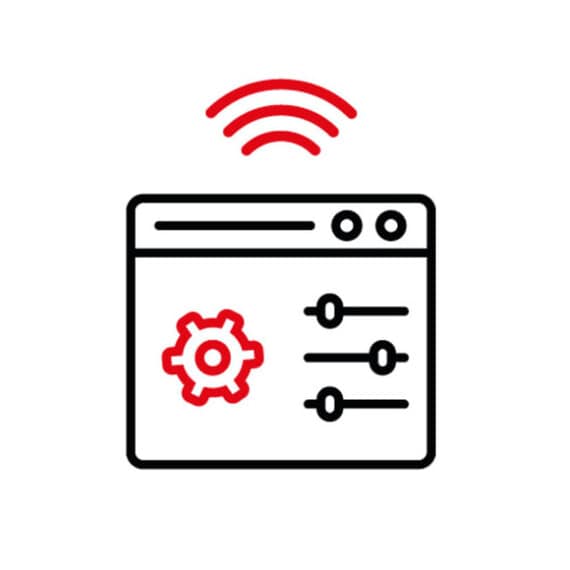
Advantages for the Customers
- „Almost live“ data access on his currently use of resources including a “live” cost estimation instead of yearly billing
- Comparison on a day-by-day basis when data is available
- No costs for the manual readout, no huddle with a yearly appointment for manual meter readout person
- Secure due to encryption, only the owner of the data knows the key required for decrypting the messages of the meters
- Several metering providers can share a single Smart meter Gateway (water, gas, electricity, heat cost, …)
Disadvantages for the Customers
- High initial costs: Smart meter gateway and meters with wireless interface
- Battery lifetime requires exchanging devices each 7 - 10 years in case of battery operated devices – due to security reasons “just” changing the battery is often prevented
